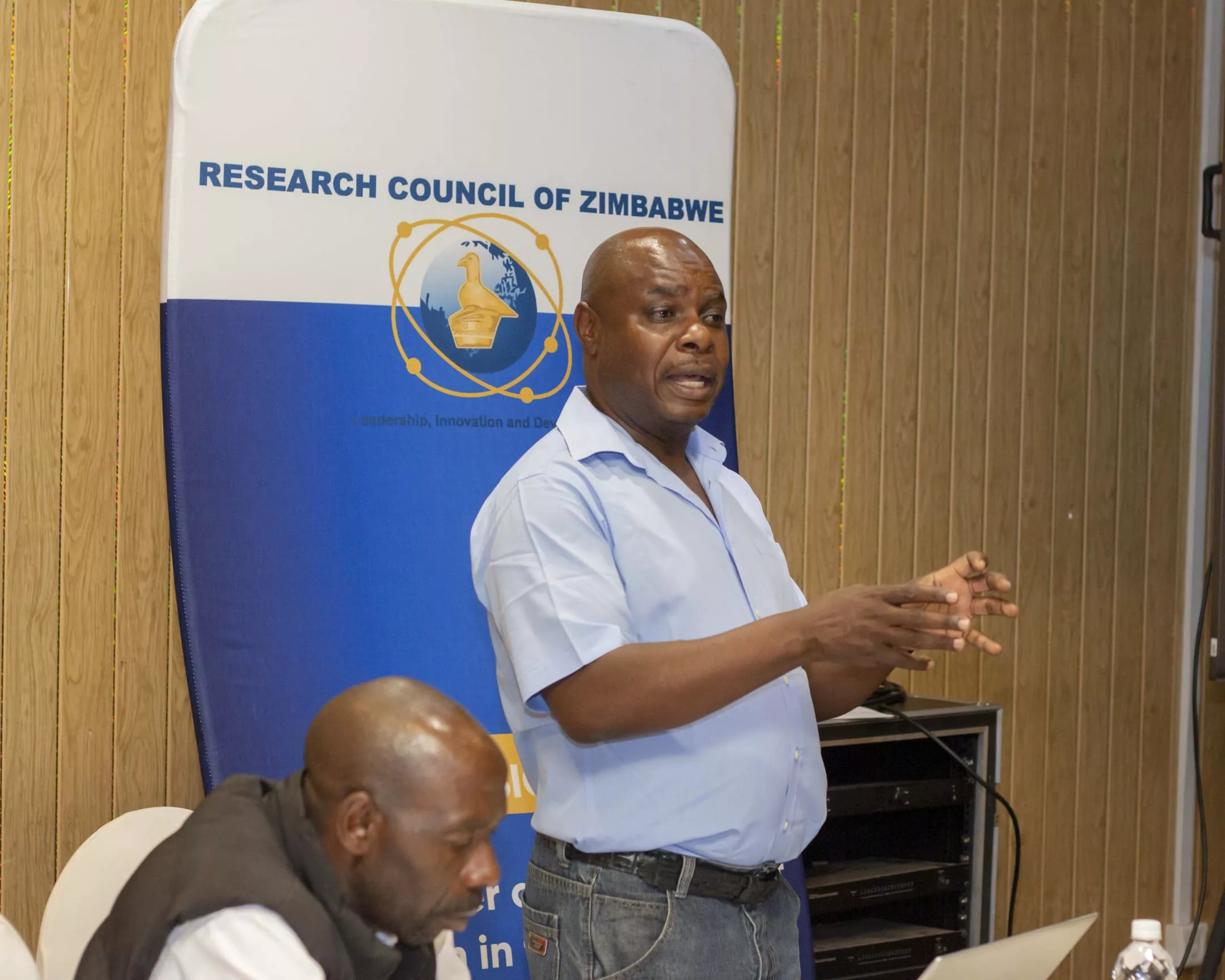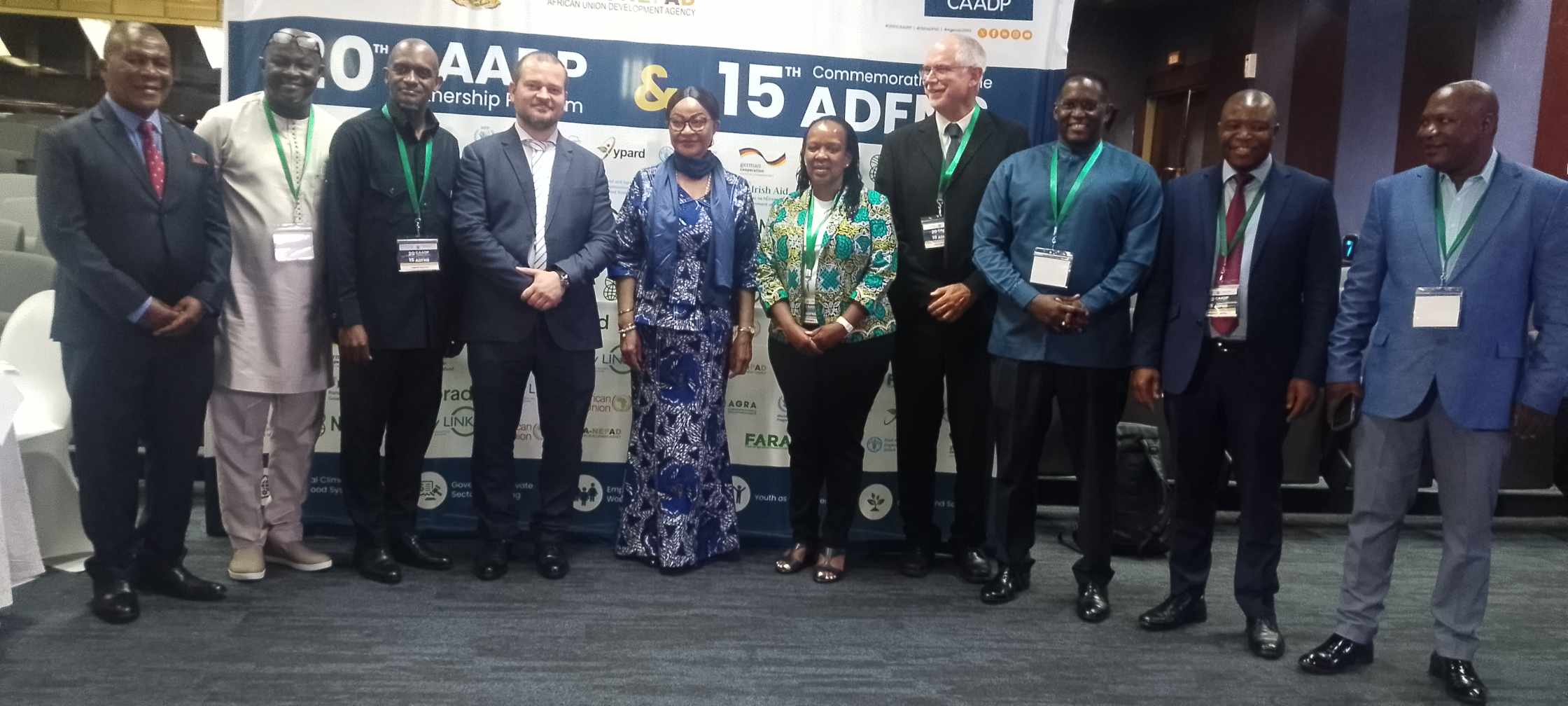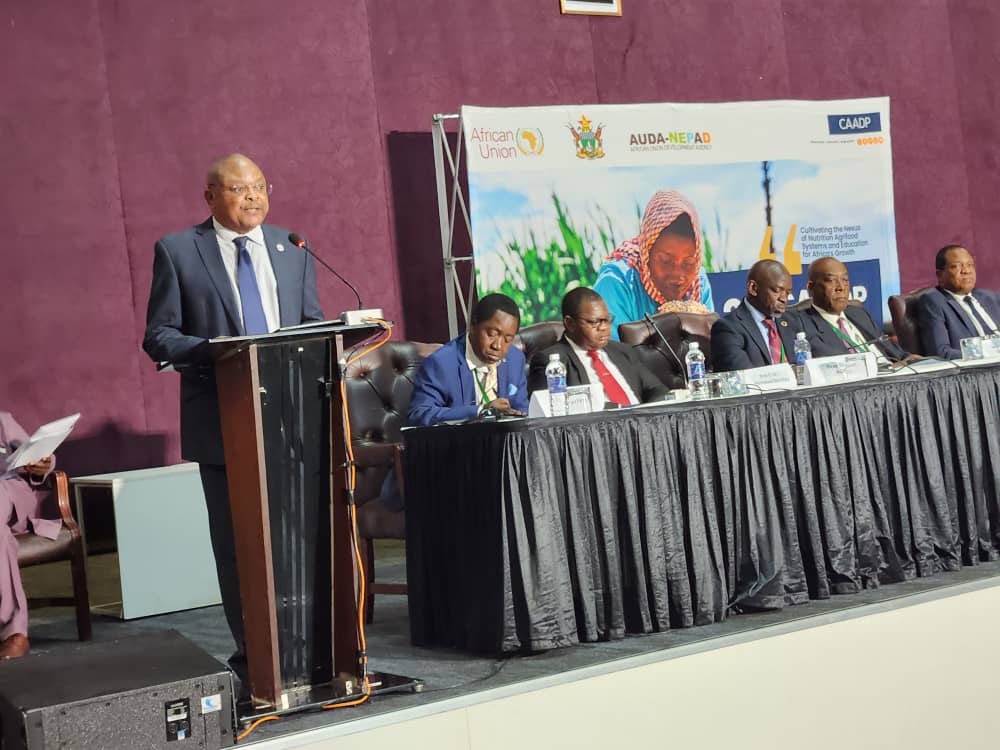The Platform for Agricultural Risk Management (PARM) and the African Union Development Agency (AUDA-NEPAD) shared knowledge of the approaches and opportunities for effective agricultural risk management (ARM) in Africa.
Speaking during a side event titled “Accelerating Investments for Inclusive and Holistic Agricultural Risk Management in Africa” on the sidelines of the commemoration of the 15th Africa Day for Food and Nutrition Security (ADFNS), the 20th edition of the Comprehensive Africa Agriculture Development Programme (CAADP) Partnership Platform (PP) and the associated Malabo Policy Learning Event (MAPLE), Vincent Oparah, AUDA-NEPAD’s Senior Programme Officer for Disaster Risk Management and Recovery shared information about potential funding and investment areas in agriculture risk management.
“There is a need to focus on agriculture risk management because agriculture is the mainstay of Africa’s economy. The sector is vulnerable to price volatility, financial uncertainties, global geopolitical tension, and climate risks (El Niño and La Niño events). Southern Africa and parts of the Sahel are undergoing drier conditions, while East Africa is being hit with wetter-than-usual conditions that trigger floods. This leads to loss of income and livelihood among smallholder farmers.
“These disasters exacerbate food and nutrition insecurity (at least one in five Africans goes to bed hungry, and over 140 million people in Africa face acute food insecurity). Research suggests that interventions could reduce expected losses by as much as 50%. Yet, African governments currently allocate just 1% of their national budgets to anticipatory responses and disaster risk reduction management,” Oparah said.
Claude Bidogeza, PARM’s Technical Specialist alluded to the volatility of governments in taking the decisions to fund the agriculture sector.
“When, for example, the government allocated to the agriculture sector a certain amount for this year, we are not sure that the next year it will be allocated the same amount. So there is a volatility of governments taking the decision. This year, the government may decide to subsidize a particular crop. Next year, it changes its mind.
“So all those are uncertainties that prevent sustained investment in the sector. And when the environment is too risky, a farmer cannot invest. What the farmer does is to keep the agriculture subsistence, to get enough to eat. So the prevalence and the complexity of the risks faced in the agriculture system, coupled with the inability of our institution to address those risks in a holistic and integrated manner, continues to make the rural livelihoods in the agriculture sector in Africa very vulnerable,” Bidogeza said.
PARM works in countries like Cameroon, Cape Verde, Ethiopia, Liberia, Niger, Senegal, Uganda, and Zambia to generate quantitatively what are the risks that have the potential to affect the countries’ economies.
AUDA-NEPAD is supporting smallholder farmers and vulnerable groups in regional economic communities and member states to manage the risks better and also mainstream agriculture risk management into their tools, policy instruments, and investment plans.
Under the Malawi Declaration, member states committed to enhancing resilience and climate variability. Both input and output prices are volatile.
AUDA-NEPAD’s Zodidi Sivetshe, Programme Officer, Agriculture, and Food Insecurity Risk Management said her institution’s partnership with PARM seeks to strengthen the capacities of smallholder farmers, women, youth, and other vulnerable groups who are most affected by the risk factors.
“The biggest lesson in the partnership that we have is that this holistic and inclusive approach to agriculture is not just about the food, it’s about the environment. There is a big challenge of climate. We are focusing on building resilient agri-food systems in Africa through effective management of risk in pursuit of increased agricultural production and productivity,” Sivetshe said.






